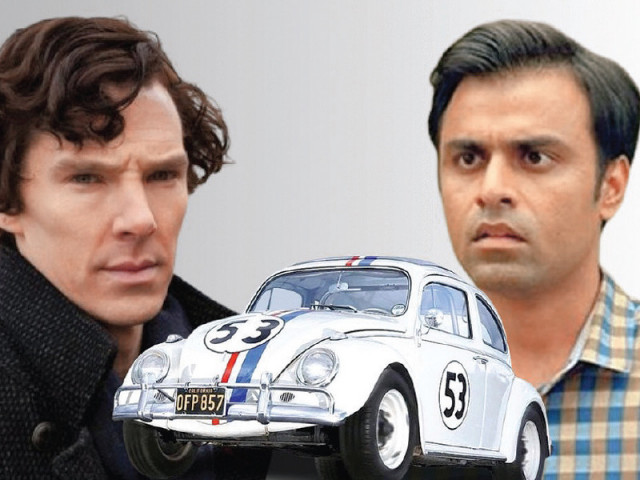Soundtracks to swear by
The magic of the right theme tune lives on forever

One of the cons of navigating life as a musical snob is losing access to a planet-sized chunk of entertainment that the rest of humanity (or at least IMDb) swears will blow your mind. Off the top of my head, one shining example in this area is Harlan Coben’s Shelter on Prime.
I have two shelves groaning under the weight of the work of the mighty Coben, so I had high expectations from Shelter. I invited the teenager (for he was hovering in the vicinity) to watch it with me. He politely declined, because he is fifteen years old and is biologically compelled to be repelled by any mother-recommended form of television.
It mattered little, however, because my foray into the world of Shelter was short-lived. Like a newly minted phone stashed hastily in a tiny back pocket, my high expectations took a nosedive as a hip-hop intro blasted out of the speakers, evoking traumatic memories of being on the school bus, held hostage to the radio blaring out late nineties R & B.
“What? You’re giving up? You can’t do that!” howled my stunned son. (His previous low levels of interest spiked in view of this unexpected development.) “You have to give things a chance! It has seven stars on IMDb!”
Because I am judgemental as well as snobby, unlike my sweet innocent boy, I have never fallen for things like IMDb ratings. My system of classification is slightly different. What I do is listen to the opening five seconds of the theme, and if I don’t like the music, I switch it off, regardless of the promises of IMDb. Thanks to this ruthless outlook, not only have I been spared countless hours of pointless television, I have also borne witness to those sweet moments when the powers that be get it right and leave us a gift.
‘Panchayat’
Panchayat is a gem on Prime where the ratings, due to a fluke of nature, tally with mine. (9 out of 10, for those who were wondering). The show follows the trajectory of the hapless Abishek, who is forced to get a job in a rural office as a secretary. All he wants to do is to be left alone so he can study for his exam, on the balance of which his future rests (or so he believes), but Abishek is continually thwarted — and forced to resolve — the nonsensical problems created almost entirely by everyone else around him.
Set in the melancholy key of A minor, the unassuming opening guitar and simple percussion in the intro form the heartbeat of this feel-good easily watchable show. Reflecting the solid friendships Abishek reluctantly accumulates, the short intro gradually builds and plateaus with a solid bass line and percussion, settling into a comfortable groove. With a laid-back bluesy feel, it conveys with crystal clarity the laid-back atmosphere of the village Abishek has been practically sentenced to, and the gradual mellowing of his heart as he forms a lifelong bond with the people in his circle. If there is anyone who hits the skip button during the opening when they are bingeing this show, I have yet to meet them.
‘Sherlock’
This is a show that needs no introduction, so I shan’t bother with one. Much like with Panchayat above, the Sherlock theme, too, kicks off in A minor. With a combination of strings, piano, woodwind and guitar coming together in ever-increasing tempo, the driving theme became a hallmark of the show. Like a butcher severing a leg joint, the Sherlock final season cleaved fans neatly in two, with half remaining loyal to the journey of the characters who had become like family and the other half unable to fathom the unchartered territory they were plunged into. Whichever side of the hypothetical butcher’s knife you swear allegiance to, there is no denying that the series finale culminates in the most epic crescendo of the theme that bound the show for four seasons.
With Sherlock and Euros uniting for the final scene in what appears to be a violin face-off, it was inevitable that Benedict Cumberbatch would be mocked mercilessly by the online violin community for his character’s incorrect bowing (as if Benedict is a concert violinist, bless him). The Sherlock-Euros face-off was torn to pieces by bewildered fans asking in what universe two violinists could emulate a full-string orchestra. But once you allow suspension of disbelief to assume control, there is no denying that scaled-up variation of the long-held theme, surging up and down chromatically, is the perfect coda to a beloved series.
‘The Love Bug’
Let’s say you’ve pulled an all-nighter. Perhaps you are flying from Sydney to California, or are saddled with a baby who has no idea what sleep is. Whatever the case may be, what is important is that sleep lapping ever closer with every passing second. So you do what anyone in your position would do: you reach for an espresso. Half an hour later, it’s as if your body has been overtaken by aliens. Praise be, you aren’t tired at all! Sleep? What sleep? You are on a high! This is what being alive must feel like! You are on top of the world!
This is what putting on the Love Bug theme will do to you. Listening to it for the first time is like having an IV shot of espresso. Herbie, cinema’s most beloved white VW, had been saving the day on racetracks long before Lindsay Lohan came along in 2005 with Herbie Reloaded. The Love Bug — the original Herbie movie hailing all the way back to 1969 — tells the tale of how one little car with a mind of its own saved the life — and career — of a jaded race car driver. Herbie comes with its theme tune, and it is the very essence of sunshine and happiness. There is no build-up; the theme launches straight in with a flute-like solo, mad-but-quiet percussion, and a simple but driving bass line that promises to keep a smile on your face all the way to the final bar. And thanks to the wonders of YouTube, when you reach the end, all you need to do is tap replay. It’s the perfect theme to play on repeat when you are behind the wheel, where you can pretend that you, too, are a driver without a care in the world, unless you are on Tariq Road, in which case, please seek out your own road rage playlist.


















COMMENTS
Comments are moderated and generally will be posted if they are on-topic and not abusive.
For more information, please see our Comments FAQ